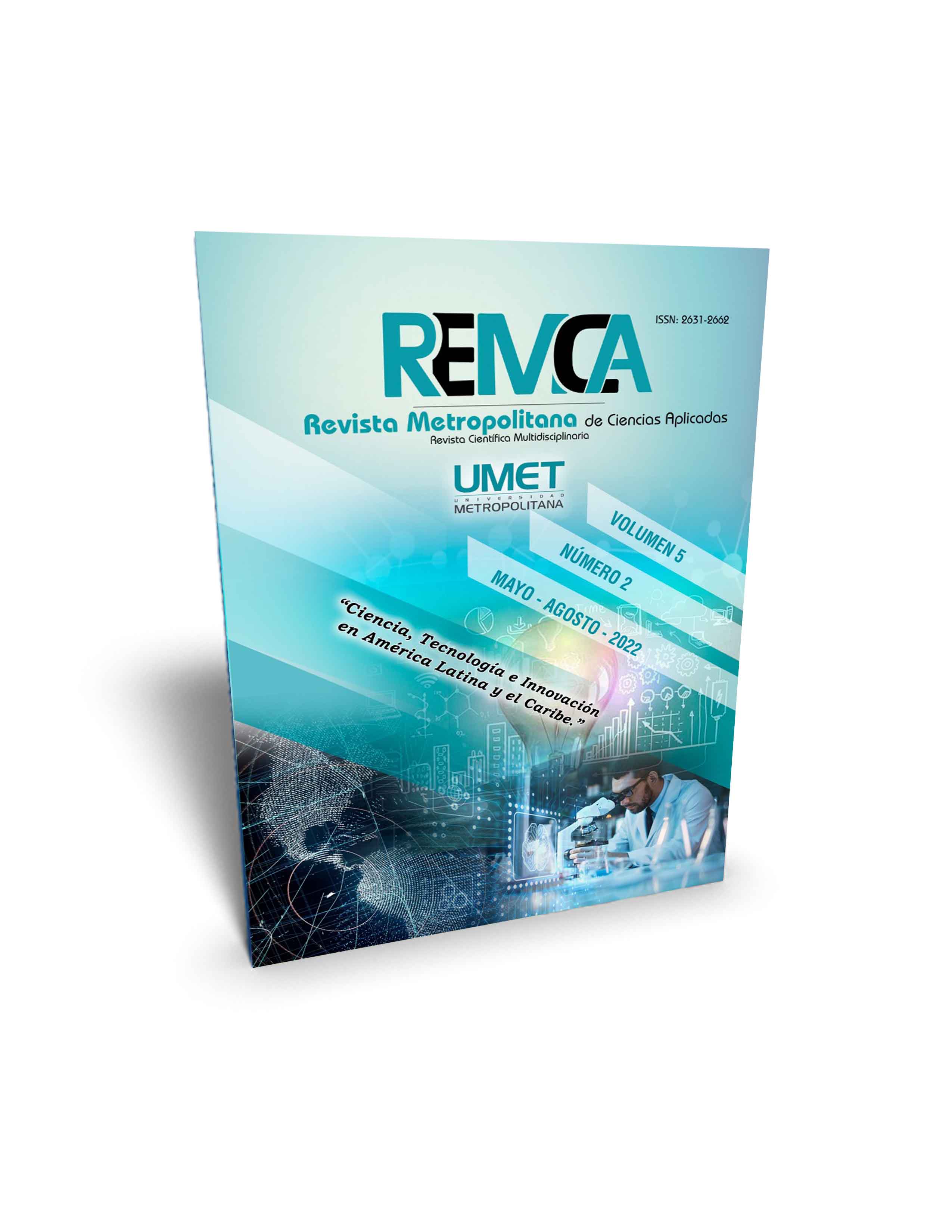Sustainability, new normality and face-to-face education: challenges for the professional training of teachers
DOI:
https://doi.org/10.62452/7gfvk381Keywords:
Face-to-face education, professional training, new normality, sustainabilityAbstract
The purpose of this article was to carry out a documentary analysis based on bibliographical research on the sustainable impact and the transformations that teacher training must have in the face of a possible return to face-to-face courses, as a new post-pandemic normality is reached. . The methodology was based on a qualitative documentary analysis. The results achieved made it possible to determine that there are a need for teachers to implement various techniques that enable them to generate learning in its different modalities. In conclusion, the research allowed even when teacher educators are offered a training program, they continue to reproduce programmatic content of what the student should learn, in their own opinion, and also present resistance to receiving courses in other formats.
Downloads
References
Alvarado, V. R. (2013). Práctica pedagógica y gestión de aula. Aspectos fundamentales en el quehacer docente. Revista UNIMAR, 31(2), 99-113.
Avalos, B. (2003). La formación docente e inicial en Chile. Ministerio de Educación.
Cárdenas, S. I., & Herrera, S. R. (2019). Socioformación y Gestión del Talento Humano para el Desarrollo Social Sostenible en la Sociedad del Conocimiento. Ecocience International Journal, 1(1), 78-85.
Davini, M. C. (1995). La formación docente en cuestión: Política y Pedagogía. Paidós.
Fernández, J. M. (2005). Matriz de competencias del docente de educación básica. Revista Iberoamericana de Educación, 36(2), 1-15.
Flores, T. G. (2009). ¿Quiénes forman a los profesores de educación básica en México? (Ponencia). V Congreso Internacional de Formación para el Trabajo. Granada, España.
Fuentealba, R., & Imbarack, P. (2014). Compromiso docente, una interpelación al sentido de la profesionalidad en tiempos de cambio. Estudios pedagógicos (Valdivia), 40(Especial), 257-273.
Lankshear, C., & Knovel, M (2003). La investigación docente y la reforma educativa democrática. Revista Mexicana de Investigación Educativa, 8(19), 705-731.
Martelo, R. J., Jiménez-Pitre, I., & Quintana, A. (2018). Determinación del Perfil Profesional de Estudiantes de Pregrado Aplicando la Técnica de Análisis Comparativo. Información tecnológica, 29(2), 29-40.
México. Secretaría de Educación Pública. (2015). Aspectos, Etapas y Métodos. Proceso de Evaluación para la Promoción de docentes a cargos con funciones de dirección, supervisión y asesoría técnica pedagógica en Educación Media Superior.
Morales-Ocaña, A., & Higueras-Rodríguez, M. L. (2017). Editorial: Procesos de enseñanza-aprendizaje. Estudios y experiencias. Profesorado, Revista De Currículum Y Formación Del Profesorado, 21(2), 1-6.
Nieva Chaves, J. A., & Martínez Chacón, O. (2017). Una nueva mirada sobre la formación docente. Universidad Y Sociedad, 8(4).
Paredes, J. D., & Sanabria, W. M. (2015). Ambientes de aprendizaje o ambientes educativos. Una reflexión ineludible. Revista de Investigaciones UCM, 15(25), 144-158.
Prieto, E. (2008). El papel del Profesorado en la Actualidad, Su Función Docente y Social. Foro de Educación, 6 (10). 325-345.
Rodríguez, J. M. (2015). Cambios educativos asociados a las prácticas de enseñanza del docente, Revista Magister, 27(2), 91-96.
Sanz M, J. (2000). ¿Qué es la sociedad del conocimiento? Nueva Revista, (70). https://www.nuevarevista.net/que-es-la-sociedad-del-conocimiento/
Serrano, J. M., & Pons, R. M. (2011). El constructivismo hoy: enfoques constructivistas en educación. Revista Electrónica de Investigación Educativa, 13(1), 2-27.
Solís, C. (2015). Creencias sobre enseñanza y aprendizaje en docentes universitarios: Revisión de algunos estudios. Propósitos y Representaciones, 3(2), 227-260.
Tobón, S. & Luna-Nemecio, J (2020). Proposal for a new talent concept based on socioformation, Educational Philosophy and Theory, 53(1).
Tobón, S. (2013). Socioformación. Los retos de la educación en la sociedad del conocimiento. Multiversidad Management, 4, 32-37.
Tobón, S. (2015). Socioformación: hacia la gestión del talento humano acorde con la sociedad del conocimiento. CIFE.
Vaillant, D. (2002). Formación de formadores. Estado de la Práctica. Programa de reforma educativa en América latina y el Caribe: San Marino, (25), 1-47.
Downloads
Published
Issue
Section
License
Copyright (c) 2022 José Rosendo Alvarado Vázquez, Josemanuel Luna Nemecio (Autor/a)

This work is licensed under a Creative Commons Attribution-NonCommercial-ShareAlike 4.0 International License.
Authors who publish in Revista Metropolitana de Ciencias Aplicadas (REMCA), agree to the following terms:
1. Copyright
Authors retain unrestricted copyright to their work. Authors grant the journal the right of first publication. To this end, they assign the journal non-exclusive exploitation rights (reproduction, distribution, public communication, and transformation). Authors may enter into additional agreements for the non-exclusive distribution of the version of the work published in the journal, provided that acknowledgment of its initial publication in this journal is given.
© The authors.
2. License
The articles are published in the journal under the Creative Commons Attribution-NonCommercial-ShareAlike 4.0 International License (CC BY-NC-SA 4.0). The terms can be found at: https://creativecommons.org/licenses/by-nc-sa/4.0/deed.en
This license allows:
- Sharing: Copying and redistributing the material in any medium or format.
- Adapting: Remixing, transforming, and building upon the material.
Under the following terms:
- Attribution: You must give appropriate credit, provide a link to the license, and indicate if any changes were made. You may do this in any reasonable manner, but not in any way that suggests the licensor endorses or sponsors your use.
- NonCommercial: You may not use the material for commercial purposes.
- ShareAlike: If you remix, transform, or build upon the material, you must distribute your creation under the same license as the original work.
There are no additional restrictions. You may not apply legal terms or technological measures that legally restrict others from doing anything the license permits.




